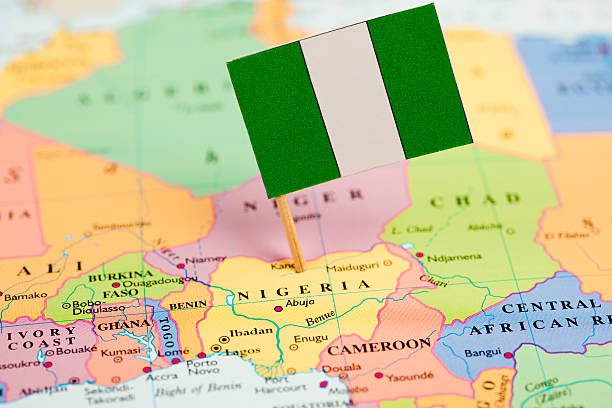National Issues
Lived Reality vs Official Statistics in Nigeria -By Ariwoola Akinwale
This is not to mention the seemingly foreclosed Betta Edu corruption case from the start of this administration—a matter that ought to have been used to set the tone of governance straight from the onset. The manner in which it was buried signals an unwillingness by the presidency to address corruption at all. In that cabinet today are ministers with serious allegations from their former offices. They can’t turn saints suddenly.

“Name the most corrupt countries in Africa,” a friend asked.
“Ghana, Kenya, Gambia, Liberia,” came the reply.
“What about Nigeria?”
“You don’t include Satan with sinners.”
This joke by a Kenyan comedian perfectly captures the frustrating experience with corruption in Nigeria today. While official data on President Bola Ahmed Tinubu’s economic reforms remains “in the green,” the “sadistical” data—reflecting the soaring prices of food, transportation, and the general cost of living—is very much “in the red.”
At a state luncheon at the Itamaraty Palace in Brasilia, the President, while addressing investors, said: “It’s getting clearer to the people. We have more money for the economy, and no more corruption.” With this statement, the President is guilty of denialism at best, or escapism at worst. Sadly, corruption is likely rife in the current administration if thoroughly investigated—just a few allegations suffice here.
How else can one describe the in-your-face response recently given by a sitting minister? When asked in an interview with Seun Okinbaloye on Channels TV where he got the money to buy a Rolls Royce, he quipped with utter arrogance: “I bought a Rolls Royce, so what? As a student, I had a Mercedes Benz… my father was the GMD of many companies.” He was clearly irritated by the host’s effrontery. His reply wasn’t unsettling for many; it only confirmed what we already knew.
It is the familiar story told by our parents—a relentless cycle of hoping against hope, even when evidence proves otherwise. For instance, the same minister was recently alleged, in an investigative report by The Cable newspaper, to have cornered hectares of land for his family and cronies. To this day, the response from the ministry he heads has been rather terse. This silent disposition, very uncharacteristic of the minister, simply echoes: “You can die if you want”—another “so what?” hurled in our collective face.
This same individual was also alleged by Chidi Odinkalu, in one of his columns with People’s Gazette, to have brought family cronies into the judiciary through the back door. Yet nothing happened, despite the cries of these “wailing-wailers” (apologies to Femi Adesina). What a country!
Last year, the House of Representatives Committee on Women Affairs and Social Development engaged in a face-off with the Minister of Women Affairs over an alleged diversion of ₦1.5 billion meant for contractor payments by officials of the ministry.
During the interrogation the Minister claimed that 30 percent of the total sum meant for contractors was paid to her ministry. She could not give an account of how it was spent, saying instead that the she had been advised to “mind her business” (Vanguard, July 10 2024).
This is not to mention the seemingly foreclosed Betta Edu corruption case from the start of this administration—a matter that ought to have been used to set the tone of governance straight from the onset. The manner in which it was buried signals an unwillingness by the presidency to address corruption at all. In that cabinet today are ministers with serious allegations from their former offices. They can’t turn saints suddenly.
Yet, those who speak up against such evils are labeled “fifth columnists” or pessimists. One individual in the current government even warned that “we need to avoid saying things like this for the sake of the country’s image.” Patriotism, it seems, now means silence and an uncritical view of governance. Such gestures are not patriotism—they are partisanship.
The tragic irony of the President’s economic reforms is that they have two faces: a statistical one and a sadistical one. The official numbers are masked by a level of corruption that reflects the sadistic reality of lived experiences for many Nigerians. The illusory rhetoric is that the subsidy regimes for the dollar and fuel were removed to salvage the Nigerian economy from debt and corrupt beneficiaries, and that the economy has now stabilized.
Whatever gains we might have made from the subsidy removal savings have simply changed hands. Another “subsidy regime” is silently on the horizon, manifesting in the humongous level of corruption present in government circles at both federal and state levels. It is a classic case of robbing Peter to pay Paul. Corruption continues to make mincemeat of the reforms undertaken by this administration.
This is the reality of our existence today. We are all the victims here. As a popular saying among our people goes: “Where the elephants fight, the grass suffers.” The elephants are the corrupt officials, economic saboteurs, and profiteers in the current regime. The elephants are the failing state—the government and the system where we live and work. But in our case, the elephants have refused to separate, constantly dashing and wrangling across the grass.
In conclusion, the President’s pronouncement that the current situation in Nigeria is free of corruption is a performance—a mere play to the gallery. Against this backdrop, we are unlikely to witness any real gains from these reforms anytime soon, except on paper, the current official optimism if festers would ensure that official statistics bear no resemblance to the lived experience of the people.
Ariwoola Samuel Akinwale wrote this piece from Lagos.
ariwoolaakinwale@gmail.com









